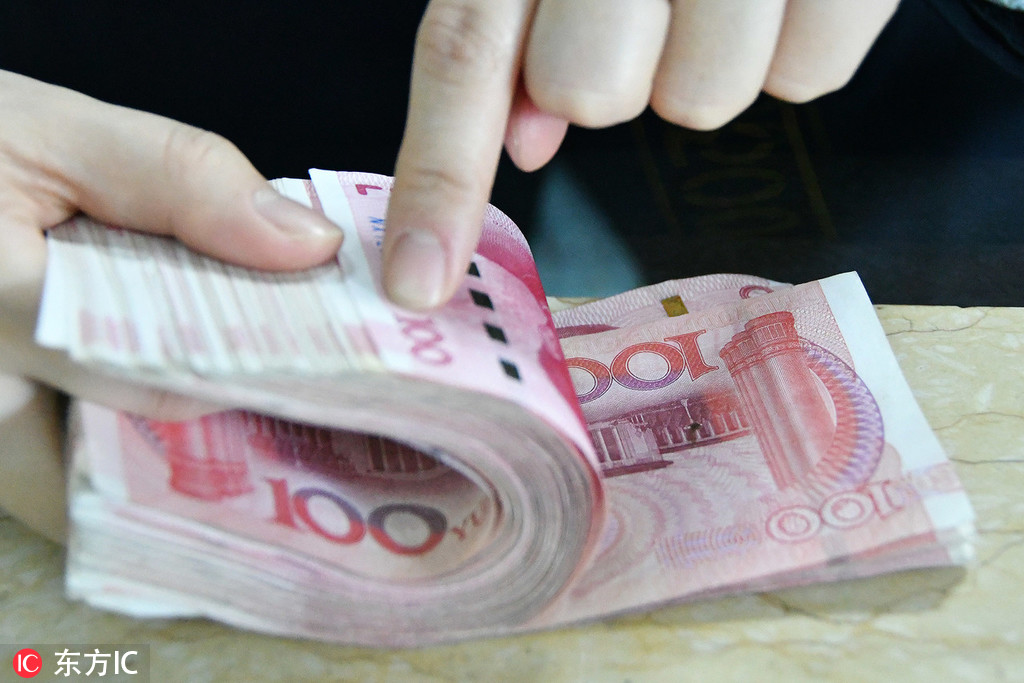China leads the world in digital financial inclusion advances


China is taking the global lead in digital financial inclusion and could introduce its best practices to other countries, said a senior fintech practitioner.
"I am looking forward to seeing China exporting some common development models for digital financial inclusion through the implementation of the Belt and Road Initiative so as to promote global sustainable development," said Meng Zhaoli, dean of JD Digits Research Institute, during an interview at a recent international forum in Beijing. Gathering a wide range of financial institutions, regulators and academics, the forum was focused on digital finance, client protection and capability building to promote sound development of financial inclusion.
Meng said JD Digits, a Chinese digital technology company, has taken part in many international exchange activities, during which its foreign counterparts said the practice of digital financial inclusion in China is worth learning. The company is also cooperating with the United Nations Capital Development Fund, which hopes to introduce great business models to Africa.
The World Bank cited a program launched by JD Digits, formerly known as JD Finance, to provide farmers with microcredit as a successful project in the World Development Report 2019.
In this program, JD Digits developed a risk management model that calculates all types of risk involved in poultry farming and granted loans to farmers who do not have money to start a poultry business. The loan was provided by the International Finance Corporation, a member of the World Bank Group, and local commercial banks, while JD Digits offered risk management services.
"According to our estimates, a farmer will spend 12 yuan ($1.79) on chicken feed to raise a chicken in 42 days, and we charge interest of 0.06 yuan for every 12 yuan of a loan used for livestock feed. We share the loan interest with our bank partners," Meng said.
Starting from last year, JD Digits has shifted its focus to cooperating with financial institutions and enabling small and medium-sized banks to reach a wider range of small and micro businesses and farmers through the exploration of technologies, including big data, artificial intelligence and blockchain, she said.
Bai Xuemei, vice-president of CD Finance, a Beijing-headquartered rural microfinance institution, said on the sidelines of the forum: "With the development of science and technology, some very capable institutions that highlight financial technologies have emerged, offering loans via microcredit companies. The market impact they have created with their capabilities is something that was not expected by regulators and the existing market players."
As the former vice-president of the China Micro-Credit Companies Association, Bai noted that many banks are less capable than microcredit companies in terms of customer acquisition and risk identification when they are dealing with farmers, small enterprises and individually owned businesses. In her view, the government should encourage large and medium-sized commercial banks to collaborate with microcredit companies in promoting financial inclusion.
"This will combine the advantage of banks in offering loans at low costs with the strong abilities of microcredit companies in customer acquisition and risk management. I believe it is an effective way to help small and micro-sized enterprises solve financing difficulties and reduce financing costs," she said.
Financial inclusion is not limited to providing credit and other financial services to medium, small and micro-sized enterprises and individuals, said Bei Duoguang, president of the Chinese Academy of Financial Inclusion at Renmin University of China, one of the organizers of the forum.
"The essence of financial inclusion is to comprehensively enhance the ability of small and weak businesses and individuals to survive, develop and even foster innovation. That is why we stress financial education and the building of financial capability while we are making progress with financial inclusion. We are teaching a man to fish, rather than giving him a fish," he said.




































